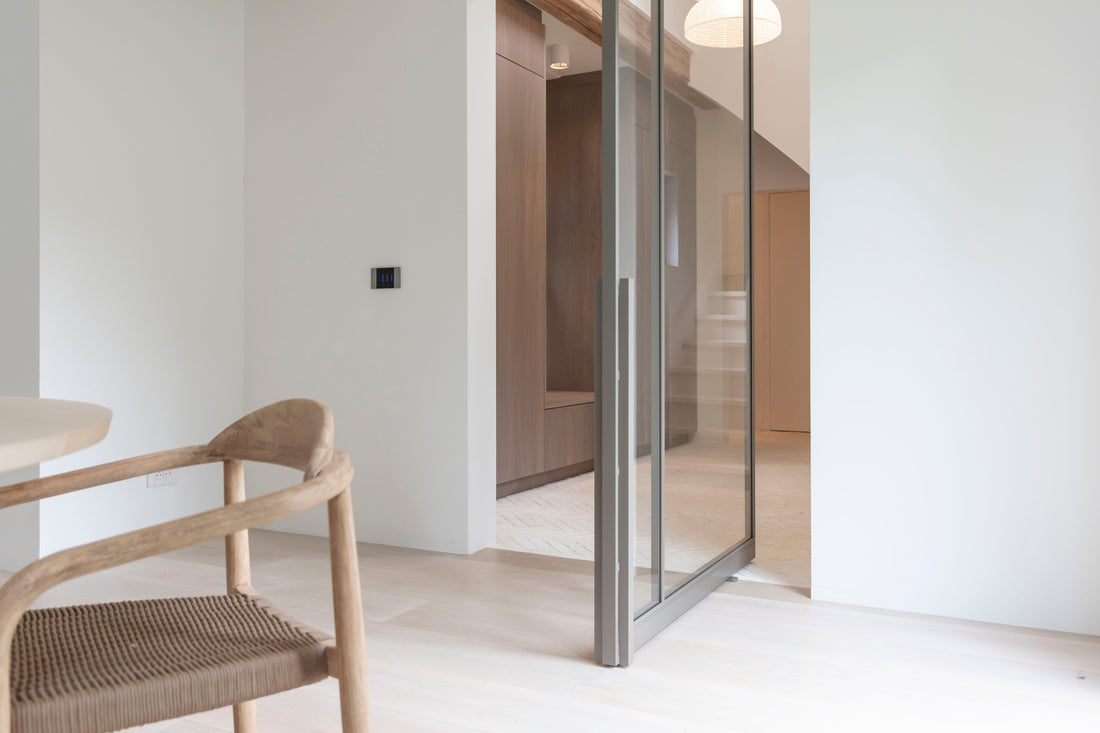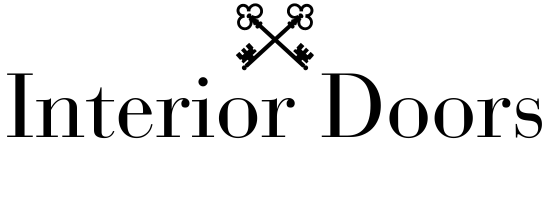
Steel Doors Fire Rated Options in 2025
Samuel MorrisSteel Fire Doors: Strength, Safety, and Style Combined
When it comes to internal fire doors, few options offer the same blend of safety, durability, and sleek design as steel fire doors. Steel fire doors provide a dependable barrier against fire—and they look good doing it.

In this post, we’ll explore everything you need to know about steel fire doors: how they work, where to use them, how they compare to timber fire doors, and why they’re becoming a must-have in modern interiors.
What Are Steel Fire Doors?
Steel fire doors are internal doors made from steel and fire-resistant materials, designed to resist the spread of fire and smoke for a specified period—typically 30, 60, or 90 minutes. These doors are constructed to meet strict fire safety regulations, and when properly installed, they act as critical protective barriers in the event of a fire.

A steel fire door typically consists of:
- A galvanised steel frame and leaf
- A fire-rated core (such as mineral wool, vermiculite boards, or honeycomb core with intumescent seals)
- Heavy-duty hinges and fire-certified hardware
- Optional glazing using fire-rated glass
Why Choose Steel for a Fire Door?
Steel is non-combustible, strong, and long-lasting, making it an ideal material for fire doors—especially where maximum fire resistance and durability are required.

View our tinted glass options for privacy and a modern design
Key Benefits of Steel Fire Doors:
1. Superior Fire Resistance
Steel has a much higher melting point than timber or composite materials. Steel fire doors can offer fire ratings up to FD90 (90 minutes), making them suitable for high-risk or large-scale buildings like:
- Apartment blocks
- Schools and hospitals
- Warehouses and industrial sites
- Office buildings
2. Unmatched Durability
Unlike timber fire doors, steel doesn’t warp, crack, or absorb moisture. It performs consistently under stress and lasts for decades with minimal upkeep.
3. Low Maintenance
Steel doors don’t require painting, sealing, or special treatment. A wipe-clean finish and basic hardware checks are often all that’s needed.

4. Modern Design Options
Today’s steel fire doors are available in a wide range of finishes, from powder-coated black for industrial interiors to glazed and grid-patterned styles for modern living. They can be just as stylish as they are functional.
Steel Fire Doors vs Timber Fire Doors
While both can be FD-rated and compliant with UK regulations, they serve slightly different needs:

| Feature | Steel Fire Doors | Timber Fire Doors |
|---|---|---|
| Fire Rating Potential | Up to FD90+ | Typically FD30–FD60 |
| Durability | Extremely high | Moderate to high |
| Maintenance | Very low | Moderate (may need repainting/sealing) |
| Design Flexibility | High in modern/industrial | High in traditional interiors |
| Moisture Resistance | Excellent | Can be an issue in humid environments |
| Cost | Higher upfront | More affordable for FD30 options |
In high-risk or commercial settings, steel is often the go-to material for fire doors. In homes or smaller buildings where design continuity with timber doors is preferred, FD30 timber fire doors might be more suitable.
Glazed Steel Fire Doors: Light Without Compromise
One of the common concerns with internal fire doors is that they feel bulky or closed-off. But with glazed steel fire doors, you get the best of both worlds: fire protection and natural light flow.
Fire-rated glass can withstand extreme temperatures for up to 60 minutes, and when combined with a steel frame, it creates a striking visual statement. Common uses include:
- Between kitchens and hallways
- In commercial corridors
- As stylish office partitions
- In loft apartments and modern extensions

Frameless or grid-pattern glazing also adds a refined, architectural touch to what is traditionally seen as a utilitarian feature.
Where Should Steel Fire Doors Be Installed?
Steel fire doors are not just for commercial buildings. With increasing building regulation standards and consumer awareness, they’re now appearing in high-end homes, luxury apartments, and bespoke residential builds.

Typical applications include:
- Stairwells and corridors – to contain vertical and horizontal fire spread
- Plant rooms or storage spaces – where combustible equipment is housed
- Between garages and interiors – especially in integrated garages
- Apartment entry doors – for secure and fire-rated entry
- Boiler rooms – to contain fire from HVAC systems
Each application should follow UK fire door regulations and be signed off by a qualified inspector or building control officer.
Fire Door Ratings Explained
In the UK, fire doors are rated by the number of minutes they can resist fire, with FD30 (30 minutes) and FD60 (60 minutes) being the most common.

- FD30: Standard for domestic interiors
- FD60: Suitable for commercial buildings, plant rooms, and high-risk zones
- FD90/FD120: Used in specialised commercial or industrial settings
Note: The fire performance depends not only on the door itself but also on correct installation, hardware, and intumescent seals.
Can Steel Fire Doors Be Customised?
Absolutely. At Interior Doors Ltd, we offer bespoke steel fire doors designed to meet both safety regulations and aesthetic goals. Customisation options include:
- Size and configuration: Single, double, side panels, top lights
- Finish: RAL colours, textured powder coats, metallics
- Glazing: Clear, frosted, reeded, or fire-rated decorative glass
- Hardware: Stainless steel, brass, bronze, or matte black
- Design style: Classic grid, minimalist full glass, or hybrid timber-steel designs

View Sliding Steel Door Options
Whether you're designing for a period building with modern upgrades or a new build with strict safety standards, our bespoke options make it easy to find the right solution.
Regulations & Certification: What to Look For
When buying or specifying a steel fire door, ensure the following:
- BS EN 1634-1 Certification – for fire resistance
- Third-party certification – from organisations like Certifire or BM TRADA
- CE Marking or UKCA Compliance
- Correct frame and hardware – certified for the fire door system
- Installation by a competent person – in line with manufacturer instructions
Incorrect installation can void the fire certification entirely. Always work with certified installers.
Cost of Steel Fire Doors
Steel fire doors are typically more expensive than timber or MDF versions, but their performance and longevity often justify the investment.

Typical prices:
- Standard FD30 Steel Door (non-glazed): from £1600–£2900
- Glazed Steel Fire Door FD30/FD60: from £1,200–£3,500+
- Bespoke Designs or Oversized Units: £2,000–£4,000+
Prices vary based on glazing, hardware, fire rating, and custom finishes. Bulk discounts may be available for commercial orders.
Why Buy Steel Fire Doors from Interior Doors Ltd?
At Interior Doors Ltd, we specialise in high-quality bespoke steel doors, including fire-rated options for residential and commercial projects. We work with trusted suppliers like OTIF Steel, RK Steel, and Steelit to deliver made-to-measure steel fire doors with fast lead times and excellent customer service.

What We Offer:
- FD30, FD60, and FD90 certified steel fire doors
- Wide glazing and frame finish options
- Competitive trade pricing
- Expert advice from our Berkshire-based showroom team
- Nationwide delivery and installation support
Final Thoughts
Steel fire doors are more than just a compliance feature—they’re a statement of safety and style. Whether you're upgrading a warehouse, building a modern home, or fitting out an office, steel fire doors provide peace of mind, modern aesthetics, and long-lasting durability.
If you're ready to explore steel fire door options, get in touch with the team at Interior Doors Ltd or visit our Berkshire showroom to see samples in person.
